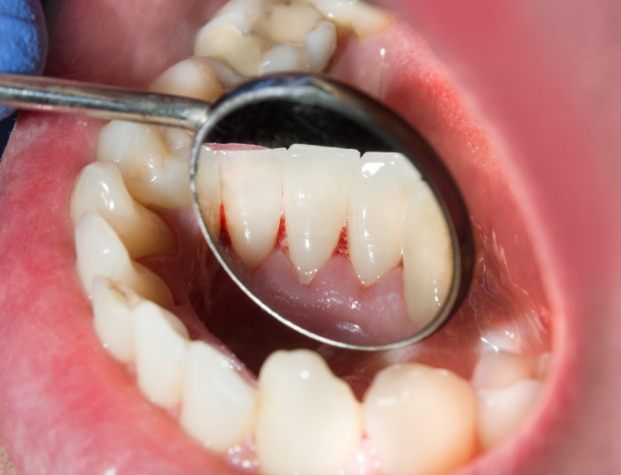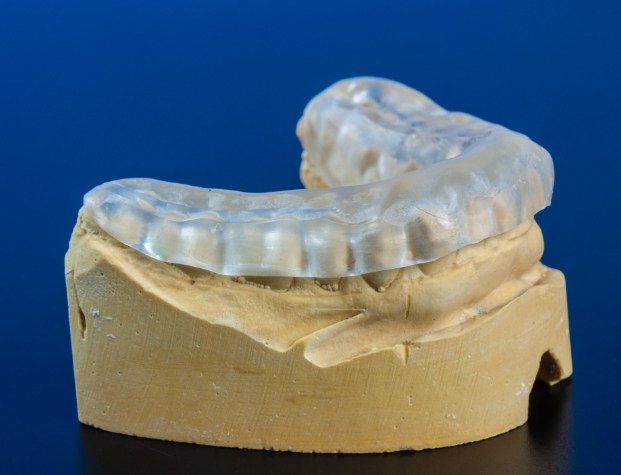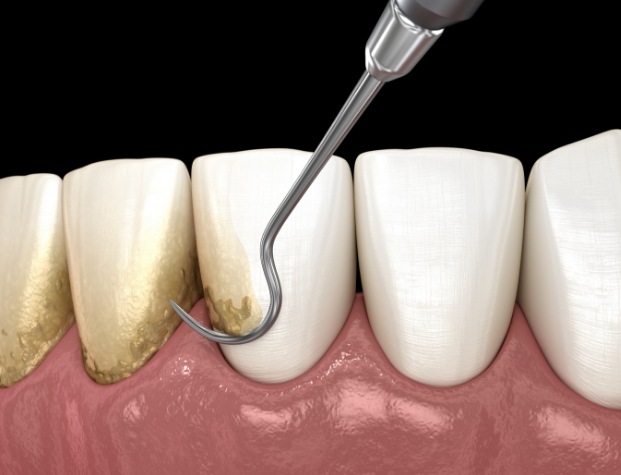Our Westerville dental office is in the same general location as the Westerville Community Center, on County Line Rd W between Africa Rd and N Cleveland Ave. We’re also less than five minutes west of N State Street.
Preventive Dentistry – Westerville, OH
Protecting Your One-of-a-Kind Smile

You only have one smile, and it’s meant to last your entire life. As such, it isn’t worth waiting until a problem occurs to see the dentist; regular dental checkups and teeth cleanings are extremely important when it comes to avoiding tooth decay and gum disease. We encourage you to give our office a call if it has been six months or longer since your previous appointment. You can count on our team at Tzagournis Dental Group of Westerville to keep your smile safe and help you find ways to improve your oral care with preventive dentistry.
Why Choose Tzagournis Dental Group of Westerville for Preventive Dentistry?
- Knowledgeable, Experienced Dental Experts
- Thoroughly Trained Dental Hygienists
- Accessible Quality Dental Care
Dental Checkups & Teeth Cleanings

A dental checkup and cleaning can provide an opportunity for your dentist to check for developing dental issues while also getting rid of the plaque and tartar that can cause cavities. A lot can happen in just a few months, so it’s best to make time to visit your dentist’s office at least twice a year.
We’ll check every nook and cranny of your smile for plaque and tartar, and we’ll let you know if there are spots that you should pay closer attention to while brushing. If there are any stains on your teeth, we can quickly polish them away in order to help you enjoy a brighter grin.
In the event that we find an issue that requires professional intervention, we’ll let you know what steps you should take next and work with you to create a treatment plan.
Oral Cancer Screening

During the course of your routine dental checkup, we might find unusual lumps or discolored patches. These are just a few examples of symptoms that could point to oral cancer. We’ll let you know about our findings right away, and we can help you set up a biopsy if needed. Catching oral cancer as early as possible is extremely important; generally speaking, you’ll have a much more favorable prognosis if the disease is caught before it has a chance to spread.
Nightguards for Bruxism

If you frequently feel stressed or have an improperly aligned jaw, you may experience bruxism, which is when you grind or clench your teeth while you are asleep. Left unchecked, bruxism can be a major threat to the enamel protecting your teeth, and it can contribute to chronic jaw pain. In many cases, you can avoid further discomfort and dental damage simply by wearing one of our expertly personalized nightguards, which can prevent your upper row of teeth from making direct contact with the lower one.
Gum Disease Treatment

Gum disease might not seem like a serious problem while it’s still in the gingivitis stage, but if it turns into periodontitis, you could be in serious danger of losing your teeth, and you may also have a higher risk of heart disease and other systemic health issues. Fortunately, it is often possible to manage your gum disease and prevent it from growing worse. Simply speak to our team members to ask about the options we offer for gum disease treatment.
Fluoride Treatment

Fluoride is a naturally occurring mineral that is known to help create stronger teeth that do not decay as easily. Many people get plenty of fluoride exposure every day simply by brushing their teeth or drinking fluoride-treated tap water. However, the fact is that some smiles need a bit more protection than others; in some cases, we may recommend having a professional fluoride treatment performed at your next appointment. The process is very quick and can lower your risk of developing a cavity before your next dental appointment.
At-Home Dental Hygiene

You need to clean your smile every day if you want to avoid a serious buildup of plaque and tartar. Generally speaking, you should brush your teeth at least twice a day, and each brushing session should take around two minutes. Flossing is also important; no matter how thorough you are while brushing, there are some spots that you won’t be able to clean with a toothbrush. People who struggle to use string floss may want to instead consider water flossers or interdental brushes.
When you go to the store to buy toothpaste and mouth rinse, make sure that they contain fluoride and have the ADA’s seal of approval. Try not to consume too much sugar; stick to healthy foods that are good for your teeth and gums. It’s a good idea to drink some water whenever you’re done eating in order to wash away any leftover bits of food. If you eat or drink anything acidic, you should wait roughly half an hour before brushing your teeth. A good oral hygiene routine can help you maintain a dazzling, healthy smile for decades. Don’t be afraid to ask us if you’d like further tips for taking care of your smile on a daily basis.




